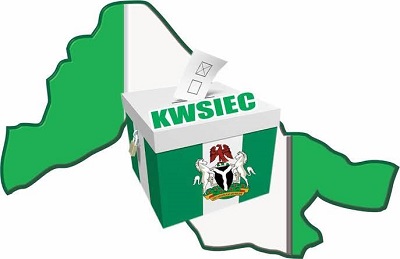EDITORIAL : Kwara’s Troubled Local Government Elections: A Threat to Democracy

The recently concluded local government elections in Kwara State left behind a deep sense of disillusionment among voters and concerned citizens. What should have been a celebration of grassroots democracy became a glaring example of electoral dysfunction, marred by ballot shortages, late arrivals of officials, voter protests, and allegations of manipulation.
At the center of the crisis is the Kwara State Independent Electoral Commission (KWASIEC), which failed in its core mandate to conduct free, fair, and credible elections. Across several wards, voters were met with incomplete materials. Mogaji Ward 007 saw no officials as of 9:03 AM, while Agbo Oba polling unit 006 received 600 ballots for over 700 registered voters. Similar issues arose in Offa, Ilorin, and Ifelodun Local Government Areas, with systemic failures eroding trust in the electoral process.
More troubling are the allegations of deliberate manipulation. In Share, voters accused officials of withholding ballots to favor certain candidates. At the Ode-Isowo polling unit, APC state secretary Alhaji Mustapha Ishowo was reportedly impersonating an INEC observer and accused of bribery. In Ekiti Local Government, PDP chieftain Hon. Ebun Owolabi reported that the chairmanship candidate was attacked after resisting an attempt to rig the vote.
This electoral mess came after the governor, Abdulrahman Abdulrazaq, deprived the grassroots of development for five years by refusing to organise local government elections —the first time in the state’s history.
His appointment of Transitional Implementation Committees (TICs) set the state back by 20 years, as the TICs failed to achieve any meaningful development. When he eventually decided to conduct the local government elections, it was not without immense pressure from political and civil society groups, particularly, Elites Network for Sustainable Development (ENetSUD) , and federal intervention, which include the threat to withhold federal allocations from states without legitimate Local Government administration in place.
With the conduct of the local government elections on September 21,2024, Governor Abdulrazaq had the chance to etch his name in gold in Kwara State’s history by restoring democratic governance at the local level. However, the election, tainted by numerous controversies—particularly within his own party, where members fought bitterly over the primaries—left an indelible stain on his administration. The conduct of these elections not only tarnished his political ideology, if had one, but also cast a long shadow over his legacy as governor.
The logistical failures and allegations of malpractice highlight a deeper systemic issue that must be addressed if Kwara is to restore faith in its electoral process. Democracy depends on free, fair, and transparent elections, and anything short of that compromises the will of the people. The protests in Ilorin and Offa are a clear indication that Kwarans demand better.
The responsibility for these flawed elections rests squarely on the shoulders of KWASIEC and the state government. Rescheduling elections where materials were insufficient, as suggested by Hon. Salahudeen A. Lukman, is only a temporary fix. A complete overhaul of the electoral system is needed to prevent a repeat of this debacle and ensure that future elections are conducted with the integrity that democracy demands.
Kwara State must learn from this and take immediate steps to rebuild trust in its electoral system. The future of democracy in the state depends on it. Governor Abdulrazaq may have conducted the elections, but the controversies that surrounded them will not easily fade. His administration must now work diligently to right these wrongs, or risk leaving a legacy of political disarray and democratic failure.





